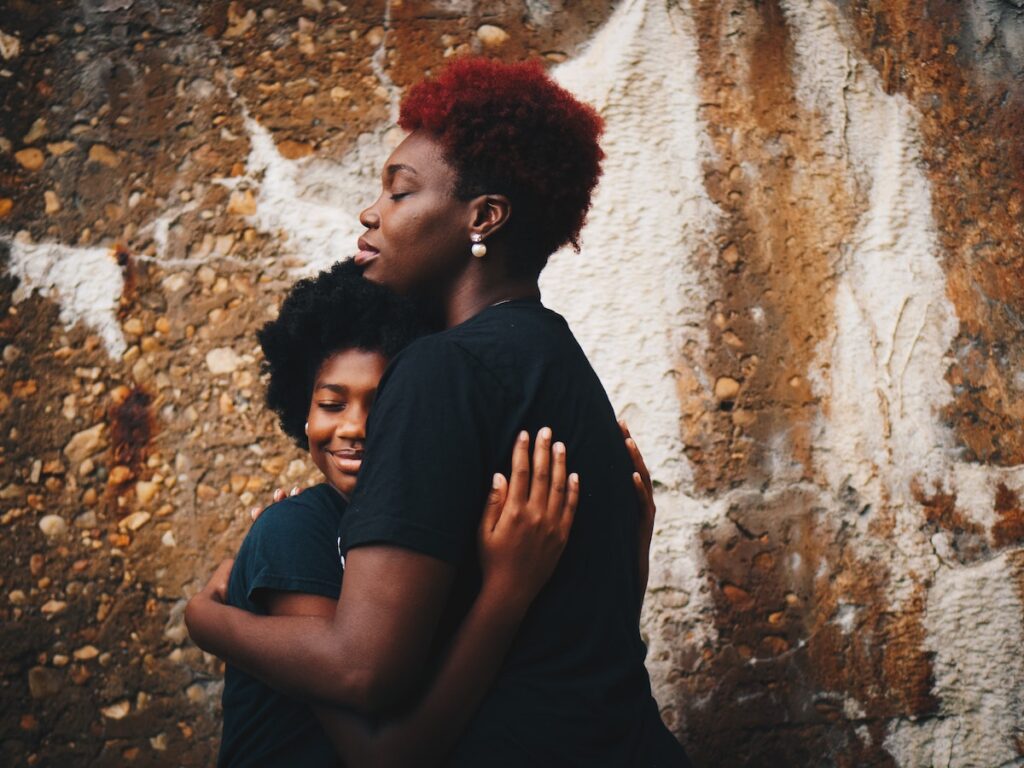
Racism is a form of prejudice that maintains hierarchy and inequality between groups of people based on social perceptions of how they look (referred to as “race”) (Jones, 2002).
Experiences of racism are linked to mental and physical stress, increasing the risk for psychiatric and physical illness among those exposed (e.g., Williams et al., 2021; Carter et al., 2017; Paradies et al., 2015). Those faced with the adverse effects of racism may start to develop coping strategies. Coping strategies are used for managing stress, and over 400 types of coping strategies have been documented in broader research (Skinner et al., 2003). However, which of these strategies is used and useful in the face of racism remains unclear.
This paper (Jacob et al, 2022) focuses on the experiences of people perceived to be “Black” (i.e., anyone assumed to have African ancestry based on their appearance, irrespective of their nationality or ethnicity) in countries where most people are perceived to be “White” (i.e., anyone assumed to have European ancestry based on their appearance, irrespective of their nationality or ethnicity). In such countries, e.g., across Europe and North America, Black people are disadvantaged and oppressed by racism at individual, community, and institutional levels.
The authors aim to collate information on the coping strategies used by Black adults to navigate racism in majority White societies (referred to in this paper as “Western Societies”). They explore what coping strategies are used by Black people in these contexts, whether gender differences exist, and how functional these strategies are for individuals’ wellbeing.

What coping strategies do affected Black adults use to navigate the impact of racism?
Methods
The articles identified for and included in this review paper were derived from an ongoing larger scoping review exploring cross-cultural differences in emotion regulation. No quality assessment is mentioned in the paper. Based on a search of 6 online databases, the authors selected studies that: (1) were peer-reviewed and published in English or French; (2) examined coping or emotion regulation in adults; (3) examined discrimination or racism in adults; and (3) included Black people of any ethnicity or nationality.
Results
The search yielded 26 final papers: 18 quantitative and 8 qualitative. All studies were of Black American adults, except for one study of Black Canadian adults. The authors emphasised the limits of this literature for drawing “cause-and-effect conclusions”, given that most research was cross-sectional. Authors of the 26 papers had not differentiated between sex and gender, most had not differentiated between race and ethnicity, and no results were stratified by ethnicity.
Coping strategies
Across the 26 papers, the most frequently documented coping strategies used by Black American and Canadian adults were:
- social support, and
- religion.
Other strategies involved:
- avoidance (e.g., disengagement),
- substance use (e.g., smoking),
- cognitive strategies (e.g., positive reframing),
- physical strategies (e.g., working harder),
- direct strategies (e.g., confrontation),
- identity affirmation (e.g., positive self-statements) and
- activism (e.g., educating others).
Four papers highlighted how coping strategies can differ according to the types of racism experienced (e.g., using problem-solving for institutional and cultural racism, or spirituality-based strategies for interpersonal racism).
Gender differences
Many coping strategies were reportedly used by both Black men and women in North America, although the literature was greater and more cohesive for strategies used by women. Passive strategies, such as ignoring racism, appeared to be used more by Black men. This could reflect gender differences in societal responses to Black peoples’ coping strategies, allowing women to engage more in activism while compelling men to exercise passive self-control. Further, physical activity was documented as more effective for men than women, again possibly reflecting social and cultural forces that could shape gendered responses to stress and trauma.
Similarities and differences in coping with physical pain
The authors compared what they learned about strategies for coping with racism to pre-documented strategies for coping with physical pain (Meints et al., 2016). They observed similarities and differences across this literature. For example, both religion and social support were reportedly used across genders for coping with both racism and physical pain. In contrast, Black Americans were documented as using relaxation strategies to cope with physical pain, but not racism. The authors stressed the need for further research on the possible use, or underutilisation, of self-care by Black people as a strategy for coping with racism. In contrast, they found more documentation of active coping strategies used by Black people to combat racism, possibly highlighting the therapeutic value of actively claiming back agency in the face of discrimination.
Functionality of coping strategies used
There was no consensus across the 26 papers as to how effective the reported coping strategies are for navigating racial stress and trauma among Black people in North America. The authors emphasised that information on efficacy depends on the desired outcome, i.e., whether individuals aim to reduce the emotional impact of racism (emotional focussed coping) or overall experiences of racism (problem focussed coping). The authors discussed the possible utility of various coping strategies using the following categorisation:
- Dysfunctional emotional focussed coping strategies: i.e., unrealistic positive reframing or self-blame, which can lead to internalised racism and depression.
- Ambiguous emotional focussed coping strategies: i.e., anger, which can have both positive or negative consequences, depending on the context.
- Functional emotional focussed coping strategies: i.e., identity affirming, to reclaim the value, beauty, or purpose of one’s identity.
- Problem focussed strategies: i.e., educating others, which can serve a therapeutic purpose by allowing individuals to feel empowered and re-claim agency.

This review suggests that seeking social support and educating others, as well as avoidance and assimilation, were used by Black adults in North America to cope with experiences of racism.
Conclusions
Findings show a wide spectrum of strategies employed by Black individuals in North America to cope with racism. More research on the functionality of these strategies for wellbeing is needed. Further, more research is needed on the coping strategies used within and between ethnic groups, also focussing on those with intersecting identities (e.g., LGBTQ+, neurodivergent, or disabled groups), who cope with multiple forms of oppression and disadvantage.

Further research could build our understanding of the effectiveness of strategies for historically marginalised groups with intersecting identities.
Strengths and limitations
While this review enhances our insight into the range of coping mechanisms used for navigating racism by Black people in North America, it also serves to emphasise vast gaps in our knowledge on this important subject.
As acknowledged by the authors, the reviewed literature focused on North America, shedding no light on the lived experiences of people racialised as Black elsewhere in the globe.
The global coping strategies of Black people are likely to be as varied as their experiences.
The mental health impacts of racism have been understudied in Europe compared to North America, and this disparity in academic knowledge is starkly highlighted here. Further, the reviewed literature pools information across all people perceived to be Black in North America (irrespective of their diversity in ethnicity or other intersecting identities) and does not cover coping strategies used by children. Furthermore, the findings need to be approached with caution, as the authors have not included a statement regarding the quality of the included papers in the review.
Although this review highlights commonalities across research studies as to the types of coping strategies examined among Black North Americans, it is unclear to what extent these commonalities reflect true patterns in the lived experiences across people, versus commonalities in the coping strategies that researchers have chosen to focus on. In other words, there could be biases in the research questions being asked, which leads to biases in the types of coping strategies documented. New information on the efficacy of the documented coping strategies for navigating racial stress and trauma would help to address this question.

The mental health impacts of racism on Black people have been understudied in Europe compared to North America.
Implications for practice
The authors address mental health professionals seeking to support Black service users with racial trauma. Mental health professionals can support service users to recognise, understand, and discuss coping strategies. Sensitive and open discussions could empower and validate service users’ lived experiences, helping to identify functional and dysfunctional coping strategies.
However, we do not yet know how well the coping strategies documented in this review will generalise to racially minoritised populations in the UK. More information is needed before recommendations are made for British healthcare policy.
From my own perspective, I have found this paper useful for contextualising experiences shared in our recent focus groups with British parents and teenagers affected by racism (as part of the Transmission of Experiences of Racism, Anxiety and DEpression in families [TRADE] project, a collaboration between researchers at Centre for Mental Health and King’s College London).
In the TRADE project focus groups, we discussed how parents’ experiences of racism can have indirect effects on children’s mental health and wellbeing. I now realise that many parents were sharing coping strategies that they used for navigating racism, which they in turn sought to teach to their children as they were growing up. Many of the strategies discussed matched those documented in the reviewed American literature (from avoidance to educating others), while others were not mentioned at all (including religion). Personally, I’d now like to explore how children learn strategies to cope with racism from their parents, and which strategies work best in the UK for who.

Mental health professionals can help racially minoritised service users to recognise, understand, and evaluate their coping strategies in the face of racism.
Statement of interests
I received funds from the Emerging Minds Network to explore how parents’ experiences of racism might impact child mental health and wellbeing in the UK. I have no conflicts of interest in writing this blog post.
Links
Primary paper
Jacob, G., Faber, S. C., Faber, N., Bartlett, A., Ouimet, A. J., & Williams, M. T. (2022). A Systematic Review of Black People Coping With Racism: Approaches, Analysis, and Empowerment. Perspectives on Psychological Science, 0(0).
Other references
Carter, R. T., Lau, M. Y., Johnson, V., & Kirkinis, K. (2017). Racial Discrimination and Health Outcomes Among Racial/Ethnic Minorities: A Meta-Analytic Review. Journal of Multicultural Counseling and Development, 45(4), 232-259.
Jones, C. P. (2002). Confronting institutionalized racism. Altanta, GA.
Paradies, Y., Ben, J., Denson, N., Elias, A., Priest, N., Pieterse, A., Gupta, A., Kelaher, M., & Gee, G. (2015). Racism as a determinant of health: A systematic review and meta-analysis. PLOS ONE, 10(9), Article e0138511.
Meints, S. M., Miller, M. M., & Hirsh, A. T. (2016). Differences in pain coping between Black and White Americans: A meta-analysis. The Journal of Pain, 17(6), 642–653.
Skinner, E. A., Edge, K., Altman, J., & Sherwood, H. (2003). Searching for the structure of coping: A review and critique of category systems for classifying ways of coping. Psychological Bulletin, 129(2), 216–269.
Williams, M. T., Osman, M., Gran-Ruaz, S., & Lopez, J. (2021). Intersection of racism and PTSD: Assessment and treatment of racism-related stress and trauma. Current Treatment Options in Psychiatry, 8, 167–185.
Photo credits
- Photo by Gabe Pierce on Unsplash
- Photo by Mubarak Showole on Unsplash
- Photo by Eye for Ebony on Unsplash
